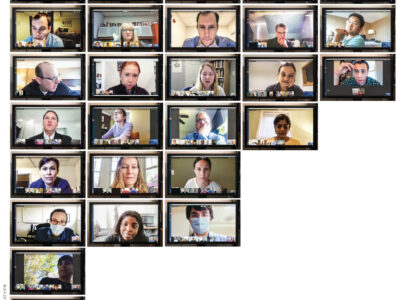
The University gets into the venture capital game.
Penn has launched a $50 million initiative to fund Philadelphia–based biotech companies. The program will support for–profit enterprises by making equity investments in companies led by University faculty. The aim is “to support and catalyze scientific and medical innovation developed by Penn Medicine faculty in their laboratories and clinics to propel Philadelphia’s growing innovation ecosystem,” Kevin Mahoney, chief administrative officer for the University of Pennsylvania Health System and vice dean at Penn’s Perelman School of Medicine, told the Gazette.
“This effort is designed to support talented Penn faculty members and provide a new pathway for recruitment and retention of researchers whose ideas have the potential to transform healthcare by bringing novel therapies and treatments to patients more quickly,” Mahoney said. It also aims to “create jobs in our region, and pave pathways to the next generation of treatments and cures.”
In an attempt to retain researchers who would otherwise leave the city for an already–established biotech hub, Penn will limit its investments to firms that promise to keep their headquarters in the Greater Philadelphia area. Another requirement is that the company must also secure further funding from a major investment firm. “Penn has committed to providing seed funding for each of the projects selected,” Mahoney explained, “and each subsequent funding round will be led by a high-quality investor or investment syndicate.”
Though Penn’s initiative was launched quietly, by June three companies had already received funding: Steven Nichtberger’s Tycho Therapeutics, Carl June’s Tmunity, and Carisma Therapeutics, cofounded by Saar Gill. Nichtberger is a senior fellow in Wharton’s Vagelos Program in Life Sciences Management, while June [“The T-Cell Warriors,” Mar|Apr 2015] is the director of translational research at the Abramson Cancer Center, where Gill is an assistant professor of hematology–oncology.
Following the University’s investment, Carisma—which develops cancer immunotherapy solutions—secured $53 million from other investors.
“Companies selected for support through this initiative must demonstrate a highly unique approach to solving a challenge in the scientific or medical field, as well as leveraging one of Penn’s key strengths, such as gene or cellular therapies or telemedicine approaches,” Mahoney said. “Potential for financial return—which could help support further investment in promising initiatives—is also a consideration.”
—Catalina Dragoi C’20




